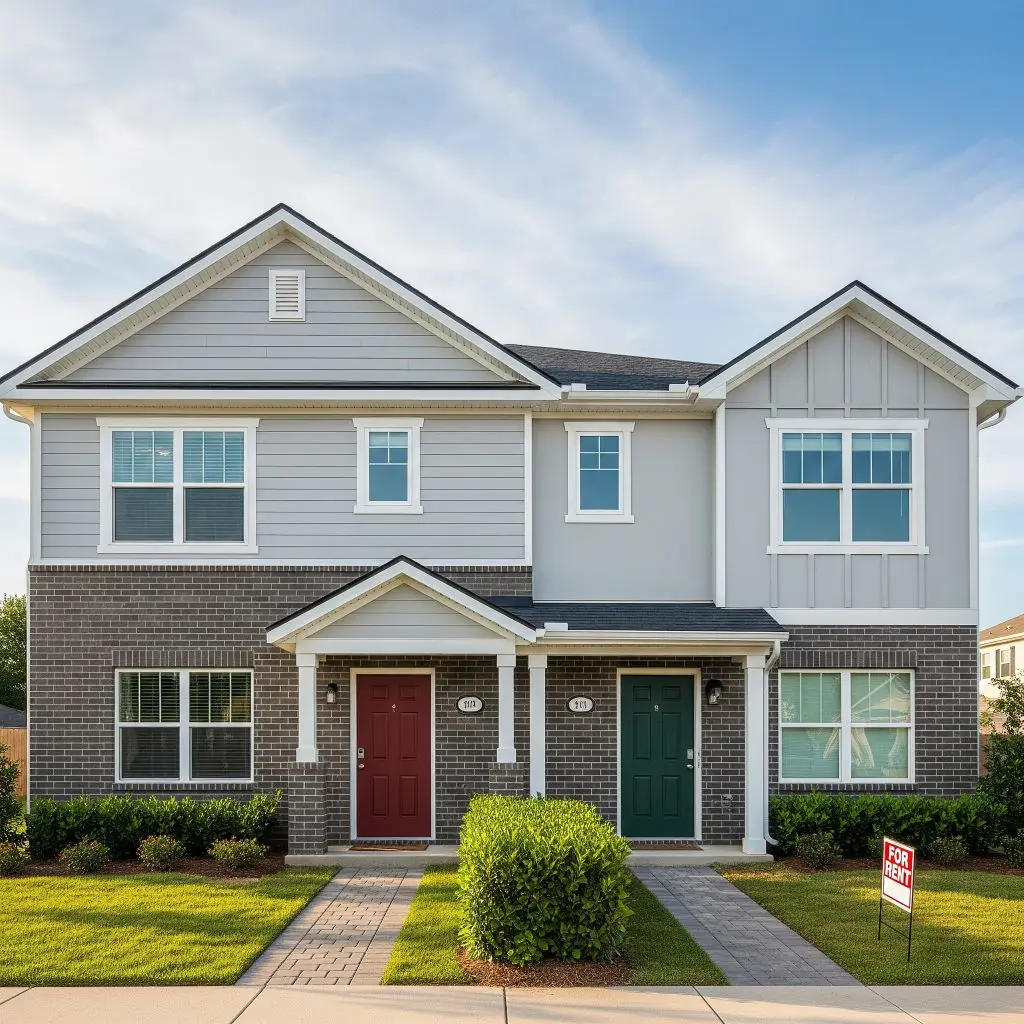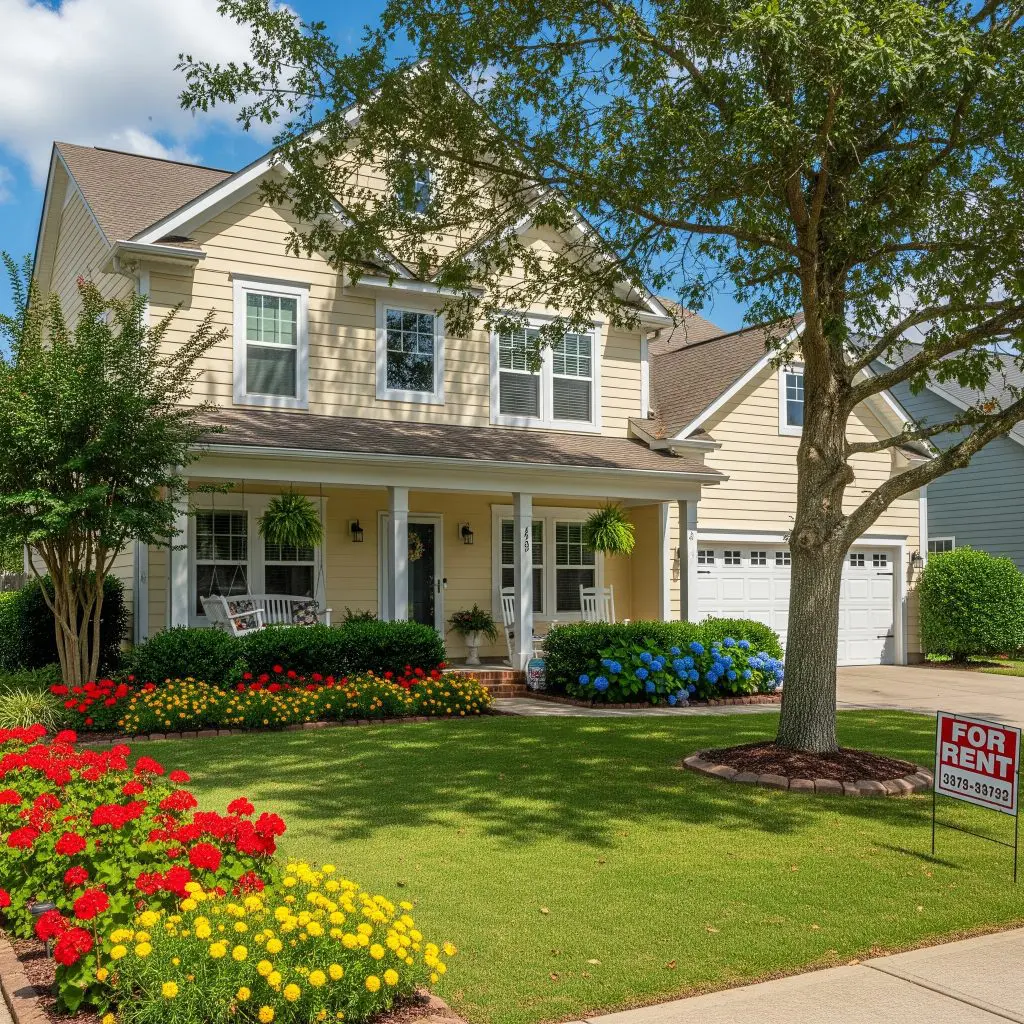Can I Do a Cash-Out Refinance on a Rental Property with a Low Credit Score? The Ultimate Investor’s Guide
CHARLOTTE, NC – AUGUST 11, 2025: Navigating the real estate investment landscape with a less-than-perfect credit score can feel like a daunting challenge, especially when you’re looking to leverage your existing portfolio with a cash-out refinance on a rental property. Traditional banks often focus on a borrower’s personal financial history, making it difficult for otherwise successful investors to access the capital they need. However, a new era of financing has emerged that puts the power back in your hands. This guide is specifically designed for real estate investors, particularly those operating in North Carolina, who are ready to unlock their equity regardless of past credit challenges.
Cash-Out Refinance on a Rental Property with a Low Credit Score:
- The DSCR Loan: Your Pathway to Unlocking Equity
- Current Market Insights & Requirements (as of August 2025)
- Advanced Geo-Targeting: Your North Carolina Investment Advantage
- GHC Funding: Your Partner in Strategic Real Estate Financing
- Q&A: Common Investor Questions
- 1. Can I do a cash-out refinance if I have a credit score below 600?
- 2. How much cash can I get from a cash-out refinance?
- 3. What if my property's DSCR is below 1.0?
- 4. What is the difference between a cash-out refinance and a home equity line of credit (HELOC)?
- 5. How long does the DSCR <a href='https://www.ghcfunding.com/2025/texas-2/sba-7a-loan-process-steps-in-texas/'>loan process take?
- 6. Do DSCR loans have prepayment penalties?
- Take the Next Step
- Ready to get started?

The DSCR Loan: Your Pathway to Unlocking Equity
The traditional mortgage world is rigid, relying heavily on a borrower’s personal income, W-2s, and tax returns. This is where the Debt Service Coverage Ratio (DSCR) loan stands out as a game-changer. The core principle is simple and uniquely beneficial for investors: this loan product qualifies you based on the cash flow of the rental property itself, not your personal income.
To determine eligibility for a cash-out refinance on a rental property, a lender will calculate the DSCR by dividing the property’s gross rental income by its monthly debt payments (including principal, interest, taxes, and insurance). A DSCR of 1.0 means the property’s income exactly covers its debt. While many lenders prefer a DSCR of 1.25 or higher, some specialized programs are available for properties with a DSCR as low as 0.75, which means the property is still cash-flowing, just not enough to cover the full payment without some personal contribution. This non-traditional underwriting approach provides a powerful avenue for investors with lower credit scores but strong, performing assets.
Need capital? GHC Funding offers flexible funding solutions to support your business growth or real estate projects. Discover fast, reliable financing options today!
⚡ Key Flexible Funding Options:
GHC Funding everages financing types that prioritize asset value and cash flow over lengthy financial history checks:
-
Bridge Loans: These are short-term loans used to "bridge the gap" between an immediate need for capital and securing permanent financing (like a traditional loan or sale). They are known for fast closing and are often asset-collateralized, making them ideal for time-sensitive real estate acquisitions or value-add projects.
-
DSCR Loans (Debt Service Coverage Ratio): Primarily for real estate investors, these loans are underwritten based on the property's rental income vs. debt obligation ($\text{DSCR} = \text{Net Operating Income} / \text{Total Debt Service}$), not the borrower's personal income or tax returns. This offers flexibility for those with complex finances.
-
SBA Loans: The Small Business Administration (SBA) guarantees loans offered by partner lenders. While providing excellent terms (long repayment, lower rates), the application process is typically slower than private/bridge funding, often making them less suitable for immediate needs. SBA eligibility heavily relies on the DSCR metric for repayment assessment.
🌐 Learn More
For details on GHC Funding's specific products and to start an application, please visit their homepage:

The Ultimate DSCR Loan for Rental Property Quiz

Are you looking to expand your real estate investment portfolio? A DSCR loan might be the perfect tool to help you achieve your goals without relying on traditional income documentation. Test your knowledge with this quiz to see if you're ready to master the intricacies of a DSCR loan for rental property.
Current Market Insights & Requirements (as of August 2025)
The market for DSCR loans is robust and designed to cater to the modern real estate investor. Here’s what you need to know about a DSCR cash-out refinance today:
- Interest Rates: As of today, interest rates for DSCR loans can range from 6.000% to 8.000%. Your specific rate is influenced by several factors, including your credit score, the property’s DSCR, and the Loan-to-Value (LTV) ratio. A lower credit score (e.g., in the 600-650 range) may result in a rate on the higher end, while a higher DSCR (above 1.25) can help you secure more favorable terms.
- Credit Score Requirements: While the loan focuses on the property, a minimum credit score is still required. For a cash-out refinance, lenders typically look for a FICO score starting at 600. This is a significant advantage over conventional loans that often demand scores of 700 or higher.
- Loan-to-Value (LTV): The maximum LTV for a cash-out refinance typically ranges from 60% to 75%. Generally, an LTV of up to 60% might be available for a credit score of 600 or higher, while an LTV of up to 70% may require a score of 625 or higher.
- Borrower & Property Requirements:
- No Personal Income Verification: The biggest benefit is the elimination of personal income verification. There is no need to provide tax returns or personal income statements.
- Entity Requirements: These loans are often made to an LLC or other business entity, which is a best practice for real estate investors to protect their personal assets.
- Acceptable Property Types: A wide variety of investment properties are accepted, including single-family homes, 2-4 unit multi-family properties, and even short-term rentals.
- Cash Reserves: Most lenders will require a minimum of 3-6 months of cash reserves to cover the new mortgage payments.
Ultimate Rental Property Loan Quiz

Navigating the world of real estate investment can be complex, especially when it comes to financing. Securing a loan for a rental property is a critical step for any aspiring landlord. This quiz is designed to test your knowledge on this important topic and help you understand the key factors involved in the process.
Advanced Geo-Targeting: Your North Carolina Investment Advantage
North Carolina’s real estate market is booming, driven by strong economic diversification in finance, technology, and advanced manufacturing. Utilizing a cash-out refinance to expand your portfolio in these high-growth areas can be a smart move.
- The Charlotte Metro: Known as a major financial hub, the Queen City offers robust investment opportunities. Consider popular areas like Plaza Midwood (28205) and Dilworth, where demand for revitalized residential properties is high.
- The Triangle (Raleigh-Durham): This area is a powerhouse of innovation and education. Investment in zip codes like 27502 (Apex) and 27513 (Cary) is particularly strong, with a high demand for both single-family homes and multi-family units driven by continuous job growth.
- Coastal Carolina: The Wilmington area, including zip code 28405, benefits from a booming tourism industry and a growing population of remote workers, making it a strong market for both long-term and short-term rentals.
For further insights into the North Carolina market and to connect with local investor communities, check out these helpful resources:
- North Carolina Real Estate Commission
- Charlotte Real Estate Investment Association
- Triangle Real Estate Investors Association
GHC Funding: Your Partner in Strategic Real Estate Financing
At GHC Funding, we specialize in providing flexible and efficient financing solutions for real estate investors. We understand that your credit score is just one piece of the puzzle, and our team has the expertise to see the full potential of your investment. Our DSCR loan programs are specifically designed to help investors like you succeed, with a focus on the asset’s performance rather than your personal history.
We offer a variety of financing options, including , , , , and , ensuring we have a solution for every investment scenario. Our team’s deep market expertise and streamlined process mean you can unlock your equity quickly and efficiently to seize your next opportunity.
North Carolina Rental Property Quiz

This quiz is designed to help you understand the key laws and regulations for owning and managing a North Carolina rental property. By testing your knowledge, you can ensure legal compliance and protect your investment in the state.
Q&A: Common Investor Questions
1. Can I do a cash-out refinance if I have a credit score below 600?
While most DSCR loan programs have a minimum FICO of 600, some niche lenders may work with scores as low as 550. However, this will typically come with a lower LTV and a higher interest rate.
2. How much cash can I get from a cash-out refinance?
The amount you can receive is determined by the property’s current market value and the maximum LTV the lender will allow. For example, on a $500,000 property with a 70% LTV, you could get a loan up to $350,000, from which your existing mortgage balance would be paid off.
3. What if my property’s DSCR is below 1.0?
Some lenders, including GHC Funding, offer “DSCR No Ratio” programs. These may allow for a loan even if the property’s income doesn’t cover the full debt, though it often requires a stronger borrower profile in other areas, such as significant cash reserves.
4. What is the difference between a cash-out refinance and a home equity line of credit (HELOC)?
A cash-out refinance replaces your existing mortgage with a new, larger one. A HELOC is a separate line of credit on top of your existing mortgage, offering a revolving credit line. For investors, a cash-out refinance is often more suitable for funding a large, one-time investment.
5. How long does the DSCR loan process take?
DSCR loans often have a more streamlined process than traditional mortgages, with closings often occurring in as little as 2-4 weeks, depending on the lender and the complexity of the deal.
6. Do DSCR loans have prepayment penalties?
Many DSCR loans do have a prepayment penalty, typically structured for the first 3-5 years. It is important to discuss this with your lender to ensure the terms align with your investment strategy.
Take the Next Step
Ready to unlock the equity in your North Carolina rental property and accelerate your investment goals? Don’t let a low credit score hold you back. The right financing solution is available.
Contact GHC Funding today to explore your options. Visit our website at or call us directly at 833-572-4327 to speak with a financing expert.
Ready to get started?
Get a No Obligation Quote Today.
Use these trusted resources to grow and manage your small business—then connect with GHC Funding
to explore financing options tailored to your needs.
GHC Funding helps entrepreneurs secure working capital, equipment financing, real estate loans,
and more—start your funding conversation today.
Helpful Small Business Resources
